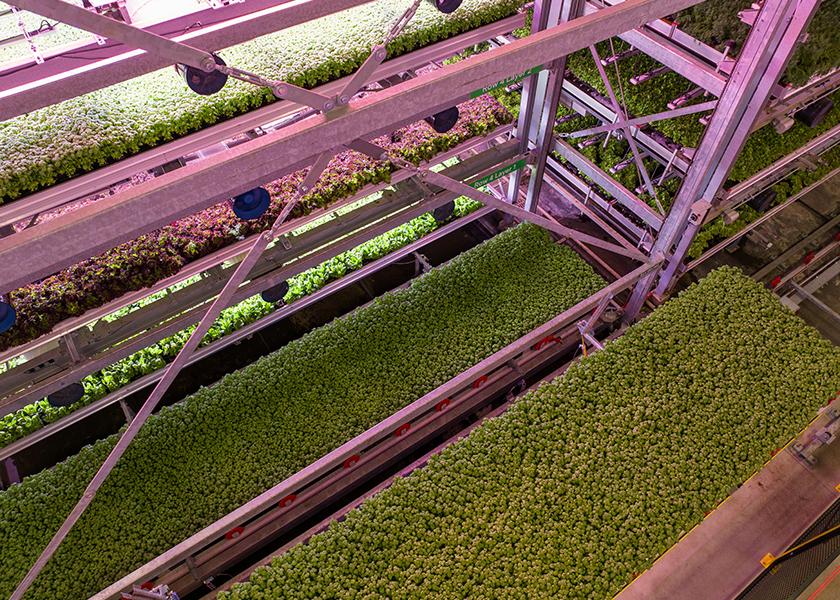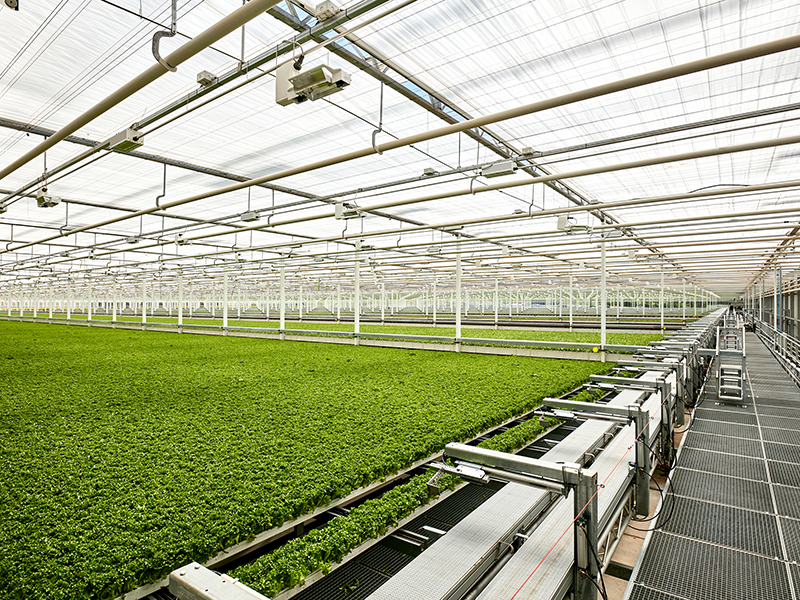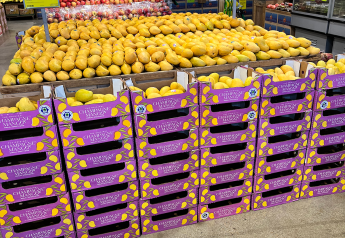Investors to CEA: The time for profitability is now

The days of investing hundreds of millions in controlled environment agriculture with starry-eyed stoicism are over. As the CEA industry matures, investors are increasingly eager to see results in the form of productivity and profitability.
Recent headlines indicate indoor farming is at a crossroads.
In the last four months, Kalera, a vertical farming company based in Orlando, Fla., filed for Chapter 11 bankruptcy, followed by Newark, N.J.-based vertical farmer AeroFarms, which filed for bankruptcy in June.
More recently, Kentucky-based indoor farmer AppHarvest suffered a series of setbacks. In July, Rabo AgriFinance demanded immediate repayment from AppHarvest on its $47.2 million loan tied to the company’s 60-acre Moreland, Ky., farm facility. The company is also in a lease dispute with Mastronardi Produce, the creditor and landlord for its 15-acre farm in Berea, Ky. Additionally, AppHarvest received a loan default notice from Equilibrium related to its 60-acre farm in Richmond, Ky.
Also in July, startup Square Roots, a Brooklyn, N.Y.-based hydroponic container grower co-founded in 2016 by entrepreneur Tobias Peggs and Elon Musk’s brother, Kimbal Musk, confirmed with The Packer that the CEA company is pausing commercial production at several of its farms and moving to a “farming as a service” business model. (See page 45 for more on Square Roots’ restructuring.)
“While these are clearly rocky times for some companies, innovation never comes without costs,” Tom Stenzel, executive director of CEA Alliance and principal of The Stenzel Group, told The Packer. “So many companies have put innovation at the head of their mission, which is admirable for a farming process that will be critical to the future. But they also have to drive near-term profitability, and that’s where the industry is focusing today.”
Soli Organic, a soil-based indoor farming company that grows 100% organic produce using both horizontal and vertical space to drive yields, is focused on its “true north” — growing both affordable organics and a profitable business, President and CEO Philip Karp told The Packer at the recent Organic Produce Summit in Monterey, Calif.
The Rockingham, Va.-based company, which recently became fully operational at its new 100,000-square-foot indoor farm in Anderson County, S.C., is “on a mission to move 3-5 million pounds of greens” a year from this farm alone, Karp said.
And not just any greens. “We’re going after items that matter,” Karp said. Items like indoor-grown spinach, arugula, spring mix, 50/50 and herbs.
The new facility is part of the company’s strategic and ambitious expansion plans in key markets across the U.S., which includes a San Antonio facility that is on track to open in the first quarter of next year and is expected to add another 3-5 million pounds of indoor-grown greens to Soli’s annual output.
Karp likens the state of CEA today to the challenges faced by many a dot-com business in 2000, when startups had exhausted their capital before turning a profit.
“Venture capitalism is driven by what the future holds,” Karp said. “CEA will be part of the future — no question — but it’s time to prove what you can do versus just talking about what you’re going to do.
“The days of promise are over. The days of proof are here,” he said.
Emphasizing the ‘ag’ in agtech
Greenhouse grower Little Leaf Farms, Devens, Mass., is yet another CEA success story.
Poised to break $100 million in sales by the end of the calendar year, Little Leaf Farms sees a bright future for itself and CEA at large.
“Little Leaf Farms’ business is healthy and growing, and we are remaining focused on our core business of growing, packaging and marketing the highest-quality branded leafy greens,” founder and CEO Paul Sellew told The Packer. “Despite the recent headwinds that certain CEA companies have faced, CEA is here to stay and will be a vital part of our transforming food system. In a free market economy, not all companies are going to succeed, and that is a healthy and normal part of our economic system.”

Earlier this year, The Packer asked Sellew why he thinks Little Leaf Farms is succeeding in a space where others are struggling. He attributes the company’s success in part to having a “farming company” mindset as opposed to taking a “tech play” approach to growing food.
“We’re a farming company, and we’re going to remain a farming company,” he said, speaking to The Packer in April.
Karp of Soli Organic agrees.
“Technology is [merely] an enabler,” he said. Indoor growers need to be “very careful and capitally restrained” to ensure a direct return on investment. They also need to remember that “CEA is about farming and infrastructure.”
Keeping the focus on farming, with tech playing a supporting role, may be the key to CEA profitability.
“In Phase 2, companies need to focus on their true north,” Karp said. “You can grow anything indoors, but not all of it will be profitable. There’s still a lot of capital out there, and I think a healthier time is coming for CEA in farming execution and operations.”
Restructuring for a stronger future
AeroFarms is another CEA company that sees healthier times ahead.
The Packer spoke with AeroFarm’s Marc Oshima, chief marketing officer and co-founder of the Newark, N.J.-based company, after it filed for Chapter 11 on June 8.
“Chapter 11 bankruptcy is a means of protection to be able to reset,” Oshima told The Packer at the time. “The financing is more about housekeeping. It’s a recapitalization — a financial restructuring. This an opportunity to clean up the cap table and bring in new money.”
Stenzel, too, sees a silver lining to recent CEA shake-ups.
“We also need to remember that Chapter 11 proceedings are not shut-down orders, but a structure for reorganization to recast business operations,” Stenzel said. “I’m confident that in some cases, these companies will come out of Chapter 11 and prove successful long-term.
“I believe indoor agriculture will only continue to grow, and I’m confident we’ll look back on this phase as only one hurdle toward an amazing future delivering fresh, high-quality produce to consumers,” he added.
Related: AppHarvest responds to recent financial news
Related: Square Roots pauses commercial production
Related: AeroFarms’ Marc Oshima ‘optimistic’ in face of Chapter 11 filing







